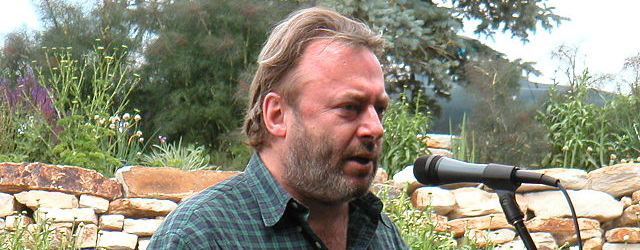“Don’t be a fan. Never be a fan.”
For a man who loved to talk, Christopher Hitchens was often at his best when he had the least to say. Indeed, such is the pith of the journalist known as “The Hitch” that his best quotes were even sold as a standalone book – some boast in the age of Wikiquote.
He was also noted, in a time where the adjective “judgemental” is always pejorative, for his voracious capacity for hatred. Indeed his objections to fandom encompassed some of his greatest dislikes – vicarious living, a lack of critical judgement towards celebrity, and the creation of a flawless icon that could never be realistically emulated.
In a descriptivist turn of mind he also pointed out that “fan” was a shortening of “fanatic” – a frivolous point given the cheapening of the word over time. (Consider the difference between “fan” and “fanboy”.) But these twin criticisms, one a radical dissent from the consensus and the other a conservative affirmation of tradition, are emblematic of a man who foxed so many that tried to place him into a convenient box.
That in mind, there is something disappointing about the work of one Kristoffer Hellesmark, a politics student from the University of Texas who attempts to relay the story of The Hitch in an 80-minute documentary. Leaning heavily on Hitch 22, Hitchens’ own memoir, it whisks the viewer through the early and latter years of the man’s life via audio excerpts from the book and clips from his latter career as a TV pundit.
There are drawbacks to this reliance on Hitchens’ own construction of his life, which scrutinises his time in the British education system (ending at Balliol College in Oxford), his mother’s suicide during his 20s and the major arguments of his last decade over Iraq, religion, and his own demise: much of the formative middle years are missed.
Perhaps least accounted for is the move to the United States, which would lead to Hitchens dying as an Englishman in America, or perhaps as an American from England. One can find in old footage from the US broadcaster C-Span and the collections of journalism from the 80s and 90s an inchoate Hitchens that is key to understanding his move from soixante-huitard (one who took part in or in his case sympathised with French unrest of 1968) to a defender of liberal interventionism and Anglo-American capitalism more generally.
The documentary also fails to scrutinise Hitchens’ refutation of his conservative leanings. For a socialist he was certainly no man of the people, and celebrated his mother’s ambition for him to ascend to the upper classes with a glee that did not repudiate the idea. In latter years he often castigated the flimsiness of the Left (with justification), and his positions on abortion, gun control and an image-driven media had a whiff of pragmatism that is more natural territory of the Right.
The above is even more interesting given the contrast with the views of his brother Peter, whose absence from Hellesmark’s documentary and Hitchens’ own memoir leaves another area of the man’s life unjustly unexamined. Though the two are famous for differing on many counts (Peter left university an atheist socialist and is now a columnist for the reactionary Mail on Sunday), there is intriguing overlap in their thinking. Both, for instance, agreed the Iraq War was radical and opposition to it conservative.
The Hitch, though slickly edited, takes its subject’s word too much at face value. A journalist who would be the first to complain at a supine press would hardly want his own reputation unchallenged in death. The great assessment of his life has still to be written.
Image – Christopher Hitchens, ATF Party 2005, by Ari Armstrong

The great assessment of his life has been written, pretty famously.
http://www.mrdestructo.com/2011/12/burn-in-hell-christopher-hitchens.html?m=1
Hitchslapped from hell indeed, may it continue.